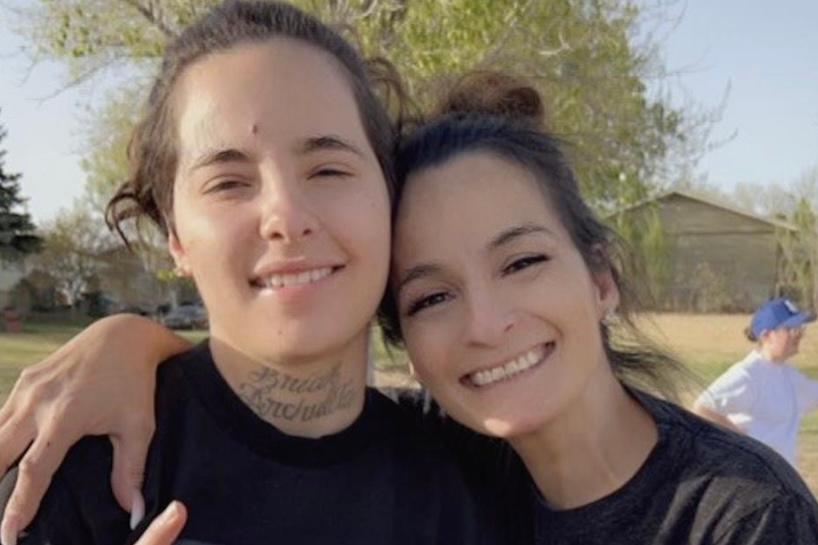Photo courtesy Denver Health
This week state lawmakers will get their first chance to shape the federal health care law for Colorado. The Affordable Care Act requires states to set up new “health insurance exchanges". Exchanges are new marketplaces where coverage will be very cheap for people who don't make much money.
That's what many in health care are hoping, anyway. This week legislative work begins on Colorado's health insurance exchange.
Colorado Public Radio Health Reporter Eric Whitney has the details.
WHITNEY: Lawmakers from both parties are working on the bill to set up health insurance exchanges in Colorado. What exactly are exchanges supposed to look like? Here's how Joan Henneberry at the Colorado Health Institute explained it at a University of Colorado forum in Aurora last week.
HENNEBERRY: How many people in this room have an airplane ticket from Expedia, Orbitz, Travelocity? OK, almost everybody.
WHITNEY: Exchanges are supposed to be internet portals kind of like those travel sites. People will plug in their age, income and location, and get back a list of policies and prices from several different insurance companies.
HENNEBERRY: But I would argue this is probably a little bit more important of a life decision than your airline ticket.
WHITNEY: And a little more complicated. Exchange websites are supposed to show consumers not only policy options, but also calculate whether they'll get a new federal subsidy to help them buy health insurance. People making up to $43,000 a year will be able to get subsidies.
HENNEBERRY: they'll still get a little bit of a subsidy, but the lower income people are going to get a greater subsidy.
WHITNEY: Subsidies could range from a couple hundred bucks to a maximum of about $4,000 for the poorest people.
Four thousand dollars is hardly chump change, but it’s real value depends on how much insurance policies will cost in Colorado.
That's where the state legislature comes back in. It's responsible for setting the rules for exchanges, and those rules will have a lot to do with cost.
Lakewood Democrat Betty Boyd says she'll introduce the first of several bills to set up the exchange this week.
BOYD: this bill would set up the structure, the governing structure for the health exchange
WHITNEY: The exchange would have a governing board, and that’s a contentious point – who gets to sit on the board that makes the rules?
Boyd says the governor and legislative leaders from both parties will appoint members who are experts in health, insurance and business topics.
BOYD: Things like individual health insurance coverage, and small businesses health insurance coverage, benefits administration, experience in purchasing health insurance coverage.
WHITNEY: So does that mean insurance company executives can sit on the board? What about networks of doctors? Can they have a say in what new policies have to cover and how much they'll cost? Who's looking out for health care consumers?
Health insurance companies in Colorado say they want representationon the governing board, and it’s no surprise. Adam Atherly, chair of health policy at the Colorado School of Public Health says the stakes are pretty high, -- at least 300,000 Coloradans, maybe even millions, eventually, are expected to buy policies in the exchange.
ATHERLY: when you hook that together with the big subsidies that are available, this is potentially a very lucrative market for the insurance companies, they're gonna wanna participate if they can.
WHITNEY: A lucrative market enhanced by the coming federal requirement to buy health insurance in 2014, if that proposal survives an eventual supreme court challenge. Many of the people required to buy insurance, would have strong incentives to buy it using the exchange.
So how much will the policies cost? Atherly says that depends on what kind of people decide to buy policies through the exchanges.
ATHERLY: you need to set it up in a way that healthy people want to participate, as well as sick people, if you just get sick people, it's going to be very hard to sustain.
WHITNEY: Sick people are motivated to buy in the exchanges because they know they'll use a lot of health care. But healthy people might just blow off buying required insurance. Atherly says that's because the penalties for not buying insurance aren't stiff enough. Those penalties are set around $700, while buying insurance could cost thousands.
ATHERLY: based on what we've seen historically, the penalties aren't even close to large enough, they'll almost certainly have to be raised substantially to really change peoples' behavior.
WHITNEY: The penalty, and its influence on the exchange marketplace is just one of dozens of factors the new exchange governing board will have to consider in setting rules for Colorado. That means Senator Boyd’s bill will be fought over, but she says she thinks lawmakers from both parties will vote to pass it.
BOYD: if we don’t do that, states will fall back into a national exchange, and I don’t think there are a lot of people in colorado who have an interest in that, they really are more interested in a more state specific entity.
WHITNEY: Boyd, a democrat, says she expects a companion bill in the House, and for it to be sponsored by a Republican. There’s motivation to act fast on the bills, as exchange governing boards have to be set up by July 1 if Colorado is to be eligible for more federal grants to help set up the new marketplaces.









